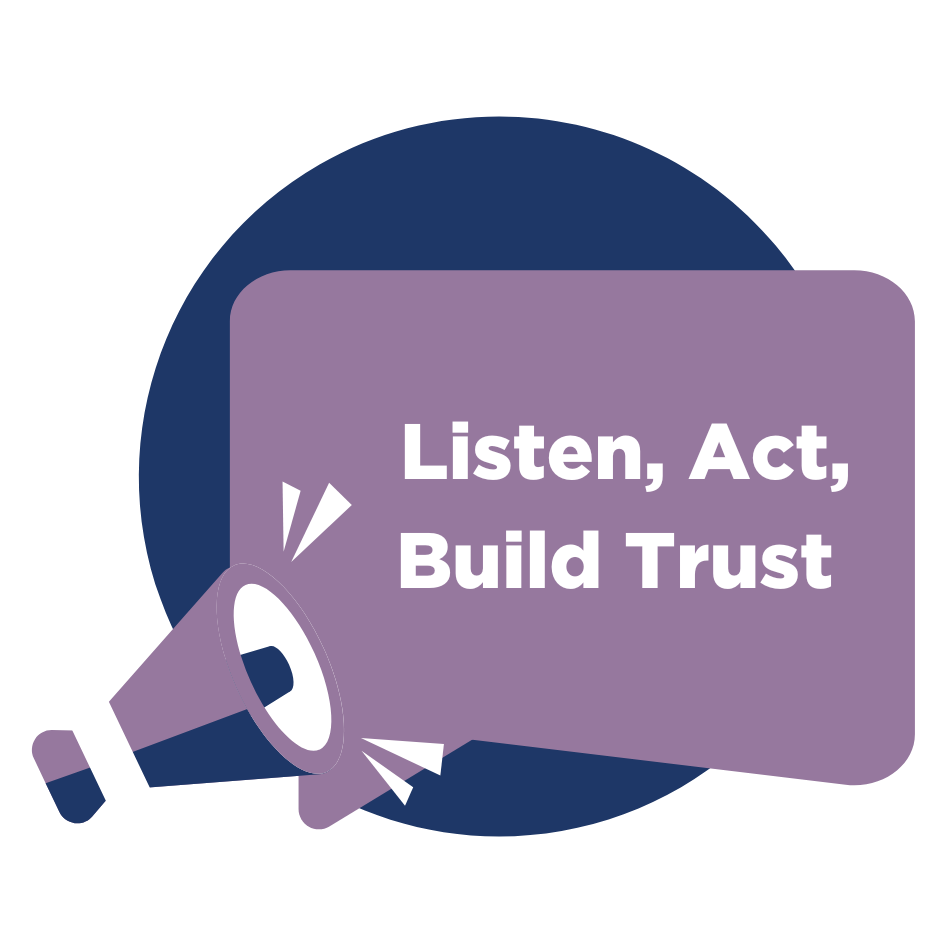 Speak Up Week 2025 (29/09 to 03/10), led by the Independent National Whistleblowing Officer (INWO), is shining a light on how NHS teams across Scotland are promoting a healthy speak up culture where concerns are heard and acted upon.
Speak Up Week 2025 (29/09 to 03/10), led by the Independent National Whistleblowing Officer (INWO), is shining a light on how NHS teams across Scotland are promoting a healthy speak up culture where concerns are heard and acted upon.
This year’s theme, “Listen, Act, Build Trust,” showcases creative approaches, from bringing staff together through cultural celebrations to transforming how students can give feedback quickly and confidently during placements.
Last year, Dr Iain Kennedy, from the BMA, wrote a blog for INWO highlighting the barriers faced by staff from ethnic minority backgrounds who do not feel able to speak up due to fears of marginalisation and repercussions, especially when reporting discrimination.
In NHS Grampian, the Staff Equalities Network is working to break down these barriers. By partnering with catering teams and local faith groups, they have hosted events marking Eid al-Fitr, Rosh Hashanah and other key cultural moments.
“I often quote, ‘People don't care what you know until they know that you care,’”
said Liz Howarth, Chair of the Staff Equalities Network.
“Having colleagues that want to share the important times with you and knowing that the organisation and its leaders care about its workforce, helps to build trust and a sense of belonging.”
While NHS Grampian’s events focus on personal connections, NHS Greater Glasgow and Clyde is taking an organisation wide approach, using data to drive change.
Anonymous all staff surveys carried out in 2023 and 2025 are enabling the board to identify areas for improvement, which are informing an action plan. This is supported by a new People Committee and a rapidly growing network of Confidential Contacts.
Brian Auld, Non-Executive Board Member and Whistleblowing Champion, said,
“All of the outcomes identified, good and bad, are included in our action plan and we are making great progress in transforming how we approach speak up culture within NHS Greater Glasgow and Clyde.”
It is widely recognised that it can be difficult to engage certain groups, such as students who are on placements during their training in healthcare settings.
NHS Tayside’s radiotherapy department has introduced a new way for students to share their experiences on placement. They can now scan QR codes in staff areas to give instant feedback.
Kelsey Normand, a Therapeutic Radiographer, said,
“It is an easy mechanism for empowering students to 'speak up' and has also allowed us to effectively and efficiently address issues that may have potentially been left unreported if this avenue did not exist.”
These stories show that building a speak up culture is not about a single policy or process—it is about the fundamentals of building a culture where people feel they will be listened to, actions will be taken when required and everyone has trust in the process.
As Speak Up Week 2025 takes place, the challenge is clear: how can every NHS team turn listening into a force for change?